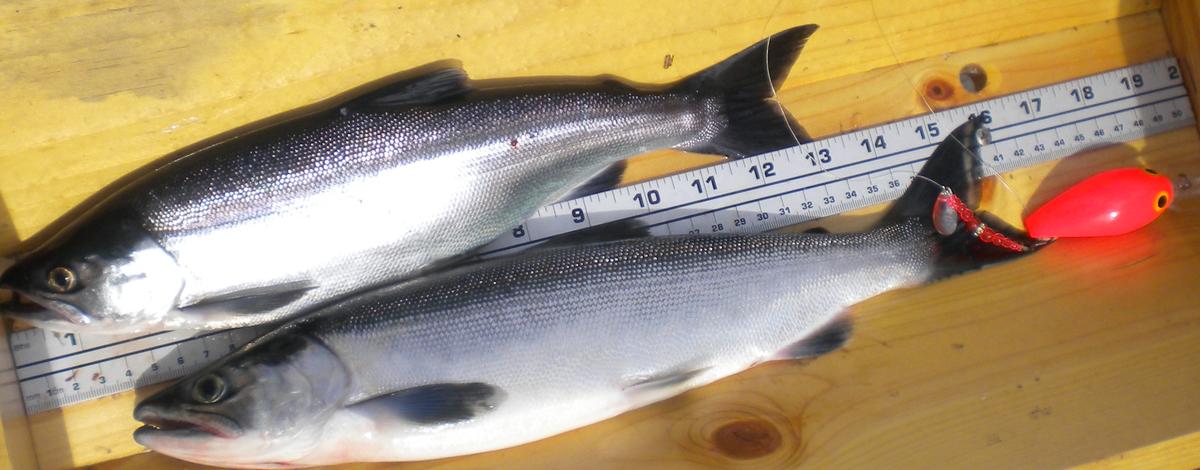Fishing has long been one of the main attractions on Priest Lake and Upper Priest Lake. However, fishing at these scenic lakes has changed a great deal over time.
Historically, the fishery was supported by three native sport fish, westslope cutthroat trout, bull trout, and mountain whitefish. Fishing for cutthroat was the most popular throughout the early 20th century.
Eventually, non-native lake trout and kokanee were introduced. Beginning in the 1940s, kokanee created one of the region’s most popular fisheries. They not only provided a high-yield harvest fishery for anglers, but also were an important food source for bull trout and lake trout which came to reach trophy sizes.
This popular fishery was based upon a balance between abundant kokanee and a lower density of trophy fish that lasted through the 1970s. Unfortunately, the delicate balance didn’t last.
Mysis shrimp, a small freshwater shrimp, were introduced into Priest Lake in the late-1960s. These shrimp provided an improved food source for juvenile lake trout and their population grew rapidly. More lake trout led to increased predation and the eventual collapse of kokanee numbers in the 1970s.
As a result, the fishery soon shifted from a diverse yield and trophy fishery to one dominated by lake trout that now have a smaller average size but are abundant. Lake trout continue to offer good catch rates for anglers today.
Since the 1980s, the Idaho Department of Fish and Game (IDFG) has managed Priest Lake as a lake trout fishery, while focusing on native fish conservation in Upper Priest Lake. In Upper Priest Lake, an annual netting program has been conducted since 1997 to remove lake trout. These efforts have curbed lake trout population growth, allowing westslope cutthroat trout and bull trout to persist at higher levels.
In 2012, IDFG conducted scoping to determine if the existing fishery was still desirable to the public. This was done in response to increasing inquiries from anglers asking if IDFG could restore the kokanee fishery in Priest Lake by suppressing lake trout as was done in Lake Pend Oreille.
In the end, the public was fairly evenly split on whether they wanted to maintain the existing fishery or attempt to bring back the traditional fishery. As a result, IDFG did not make a management change, but agreed to conduct more research and monitoring to answer questions raised by the public. IDFG agreed to engage more thoroughly with the public and re-visit the issue prior to development of the 2019-2024 statewide fisheries management plan.
In 2013, IDFG formed the Priest Lake Fishery Advisory Committee. This group of local stakeholders represents a diversity of interests and perspectives. The group has met regularly over the past several years. They worked with IDFG to develop three management alternatives for broader public input.
One option is to maintain existing management, which favors lake trout in the main lake. A second option is focused on enhancing kokanee, westslope cutthroat trout, and bull trout, which requires managing against lake trout in the main lake. The third and more challenging alternative would attempt to strike a balance that allows all species to be present at fishable levels.
Stakeholders expressed strong support for conserving native species in Upper Priest Lake, thus each of the management alternatives includes continued lake trout suppression in the upper lake.
These alternatives are now ready to be shared with the public. Several public meetings are scheduled to discuss Priest Lake management options and solicit input from the public.
The first public meeting is scheduled for Thursday, July 13th at 6:30 PM in Coolin. The meeting will be held at The Inn at Priest Lake.
Additional meetings are scheduled for July 24th in Priest River at the Priest River Events Center at 6:30 pm, and July 27th at 6:30 pm in Coeur d’Alene at the IDFG Panhandle Region Office.
Individuals with disabilities may request meeting accommodations by contacting Andy Dux at the Idaho Department of Fish and Game directly at 208‑769-1414 or through the Idaho Relay Service at 1‑800‑377‑2529 (TDD).
There will also be opportunities to provide input for those who are unavailable on the dates of these meetings. Future news releases and the IDFG website will provide details on how to provide comments.

